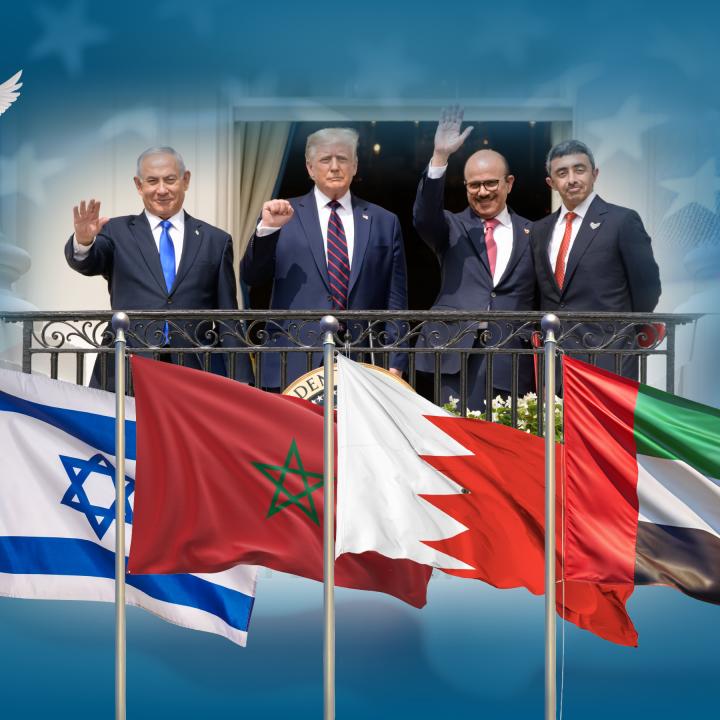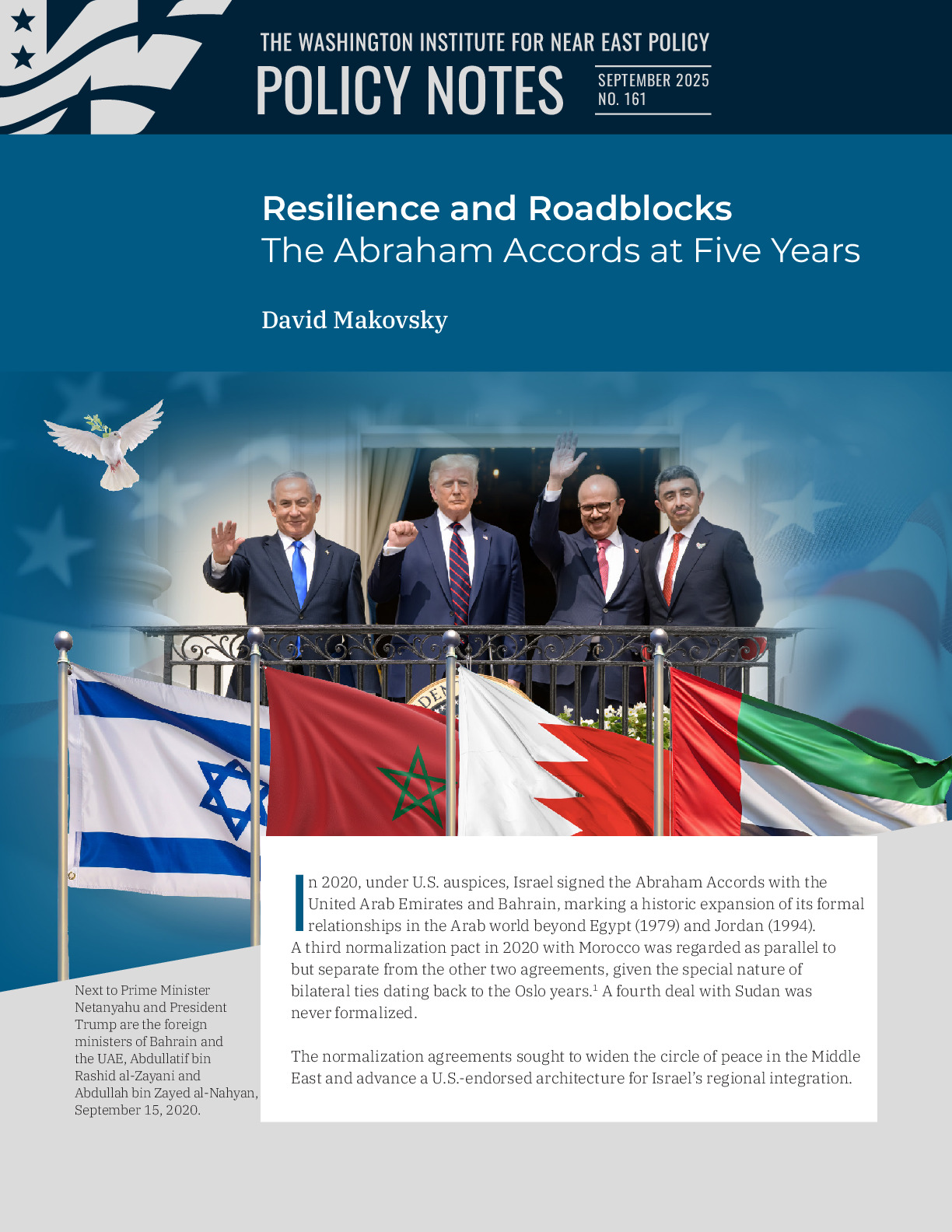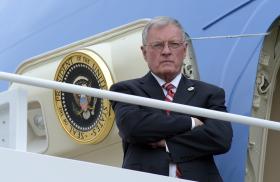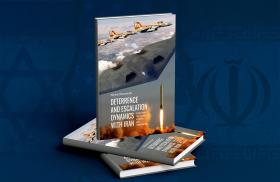
- Policy Analysis
- Policy Notes 161
Resilience and Roadblocks: The Abraham Accords at Five Years

The architecture behind Arab-Israel normalization has survived the war years, but expansion to other countries will require a credible embrace of diplomacy, along with regional collaboration to shape Gaza’s future.
A half-decade after Israel normalized relations with the UAE, Bahrain, and Morocco, it is remarkable that the strategic architecture for deepening these relationships—and engaging potential new partners—remains in place. Israel’s prosecution of the war in Gaza has undoubtedly strained ties with Arab states, but no partner has suspended them, and steady cooperation persists in areas like air defense and trade. This resilience reflects a larger reality in which Israel’s military successes have upended the regional balance of power to Tehran’s detriment, including through the decimation of Hezbollah and direct blows to Iranian military and nuclear infrastructure. But Arab actors are deeply concerned about Israel’s reliance on military force and advocate a clear pivot to diplomatic engagement.
In this Policy Note, analyst David Makovsky discusses Abraham Accords partners and prospects, while explaining the role of creative tradeoffs in facilitating past breakthroughs. But he also emphasizes that widening the tent will require an end to the Gaza war and Israeli collaboration with Arab states to shape the territory’s future.




